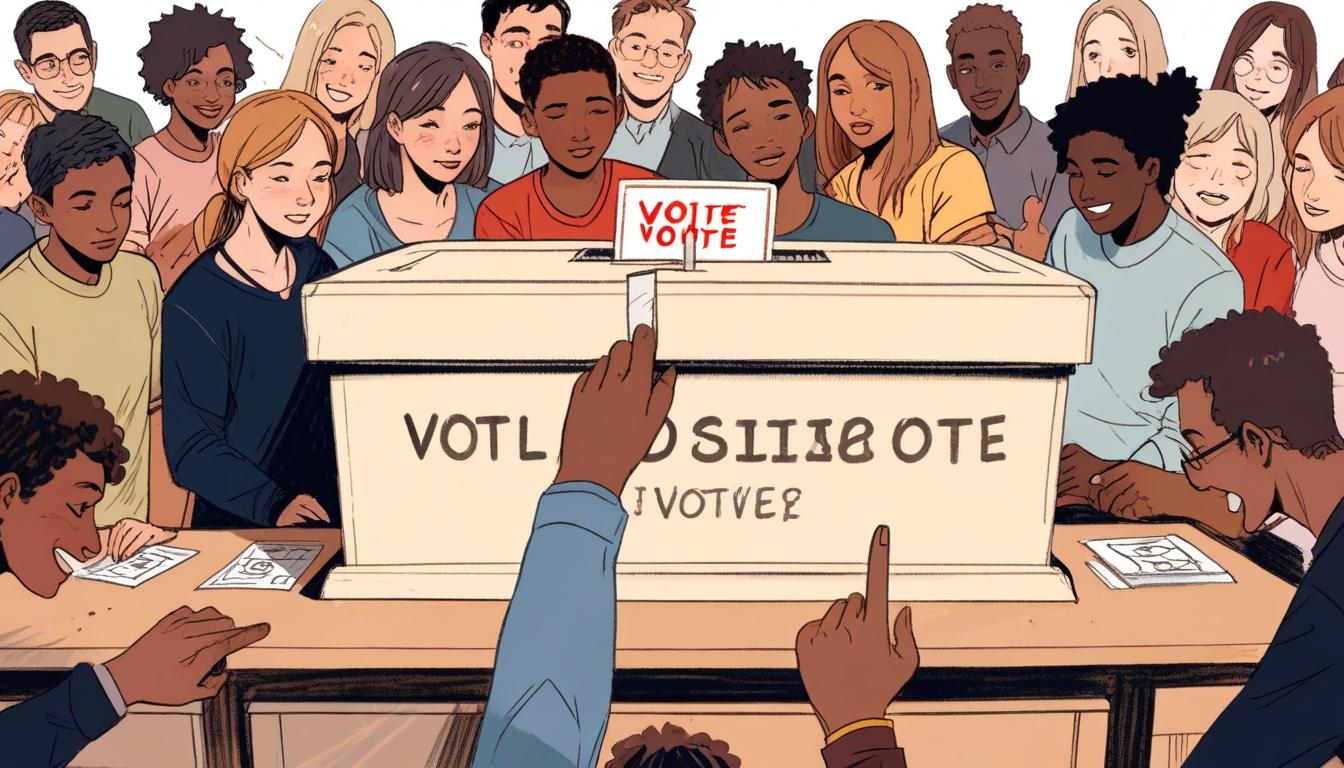A new Texas legislative proposal aims to require direct voter approval before school districts can be split, addressing recent controversy in Keller ISD and promoting greater community involvement and transparency in educational governance.
A legislative proposal in Texas seeks to shift the process for splitting school districts from a model dominated by school trustees to one requiring direct voter approval, aiming to enhance community involvement and transparency in decisions affecting local education.
The bill, debated on Tuesday in the Texas House committee, was introduced by Representative Charlie Geren, a Republican from Fort Worth, in response to a contentious episode in the Keller Independent School District (ISD). Earlier this year, Keller ISD trustees unexpectedly considered a plan to divide the district, which serves about 33,000 students, prompting significant community backlash. The proposal to split the district, justified by board members as a solution to fiscal challenges, catalysed student protests, lawsuits, and ultimately, the departure of the district superintendent. The board abandoned the plan in March, concluding it was not fiscally viable.
“When [the proposed split] came to light, the community blew up … It seems that this board believes that, by resolution, they can avoid an election. I don’t agree with that,” Rep. Geren stated during the committee hearing.
The controversy centred around a division of the district along Denton Highway, a move that residents feared would deepen educational inequities. The district’s top-rated schools are predominantly east of the highway, whereas schools west of the line serve a higher proportion of low-income families. Community members and advocacy groups criticised the trustees for lacking transparency and argued that residents should have a chance to vote on any proposal to divide the district. Supporters of the split, including some trustees, maintained that current Texas law allows school boards to unilaterally pass a resolution to divide districts, bypassing the need for an election.
In the wake of the controversy, officials in Fort Worth and Tarrant County sought legal opinions from Texas Attorney General Ken Paxton, querying whether trustees have the authority to create new districts without elections, citing the ambiguous wording of the state education code.
Keller parent Angela Hall described the legislative ambiguity as a “confusing and dangerous loophole” that permitted trustees to consider dividing the district without community consent.
Rep. Geren’s bill proposes to eliminate trustees’ ability to pass resolutions dividing districts without voter participation. Instead, the process would require that 20% of district voters petition the State Board of Education to initiate a split. Following this, a majority vote in each new portion of the district would be necessary to approve the division.
Proponents of the change argue that it will guarantee that community voices play a decisive role in district detachment questions. Keller ISD trustee Joni Shaw Smith, who opposed the initial split attempt, supports the bill, stating it would prevent school boards from being “hijacked by a small group pushing a private agenda.”
Conversely, Keller trustee John Birt, who supported the split, disputed this interpretation. “There was no backdoor collusion,” Birt said during the hearing, explaining that current law allows two pathways for detachment: a board resolution that avoids an election or a petition by 10% of voters that triggers a district-wide vote. Supervisor Chris Coker, another trustee who backed the split, added that the discussions were motivated by a belief that smaller, locally governed districts could better meet community needs.
Proponents of the split emphasised benefits such as smaller class sizes and more personalised instruction amid district budget constraints, which have contributed to overcrowding and teacher shortages. Birt voiced concern that the bill would reduce the influence of local citizens and their elected officials in managing education.
Under the proposed legislation, the State Board of Education would assume responsibility for allocating debt and property between the new districts and appoint trustees until the next election. Currently, the county commissioners’ court handles these tasks. Representative Gina Hinojosa, a Democrat from Austin, expressed apprehension about this shift, highlighting that school boards, responsible for bond obligations, should manage the financial responsibilities directly as their voters ultimately bear the costs.
The potential changes have attracted attention beyond Keller, with other Texas school districts facing financial difficulties and declining enrolment monitoring developments closely. Keller ISD anticipates a budget deficit of over $9 million for the next fiscal year.
Matthew Mucker, a Keller resident involved in litigation against the district over the split, voiced concerns to lawmakers that without legislation like Geren’s bill, other school boards might pursue divisions along socioeconomic or racial lines.
Representative John Bryant, a Democrat from Dallas, echoed these fears, asking, “Wouldn’t it be unwise of us to leave the door open to letting the school board come along and offload all of the students that have the greatest needs, and keep all the students that are most prosperous in one district?”
The bill remains under committee consideration with no immediate decision announced.
The Dallas Morning News is reporting on this development as part of its ongoing Education Lab initiative, which focuses on critical education issues affecting North Texas communities.
Source: Noah Wire Services
- https://fortworthreport.org/2025/03/11/as-keller-isd-saga-continues-lawmaker-seeks-to-require-public-vote-on-school-district-splits/ – This article discusses State Representative David Lowe’s introduction of House Bill 4156, which mandates voter approval for school district splits, directly addressing the legislative proposal in Texas to shift the process for splitting school districts from a model dominated by school trustees to one requiring direct voter approval.
- https://www.keranews.org/education/2025-03-12/as-keller-isd-saga-continues-lawmaker-seeks-to-require-public-vote-on-school-district-splits – This piece highlights the community’s response to Keller ISD’s potential split and the legislative efforts to require public votes on such decisions, corroborating the article’s mention of community backlash and the introduction of legislation to ensure voter participation in school district splits.
- https://www.keranews.org/education/2025-03-03/city-of-fort-worth-pushes-for-public-vote-in-keller-isd-split – This article details the City of Fort Worth’s formal request for legal clarification on the necessity of a public vote for the Keller ISD split, supporting the article’s mention of Fort Worth officials seeking legal opinions on the matter.
- https://fortworthreport.org/2025/01/17/fort-worth-mayor-texas-legislator-call-for-election-on-keller-isd-split-heres-why/ – This report covers Fort Worth Mayor Mattie Parker and State Representative David Lowe’s call for an election on the Keller ISD split, aligning with the article’s mention of Fort Worth officials advocating for a public vote on the matter.
- https://dallasexpress.com/tarrant/rep-schatzline-weighs-in-on-keller-isd-scrapped-split/ – This article discusses State Representative Nate Schatzline’s support for community involvement in the Keller ISD split decision, echoing the article’s mention of legislative responses to the district’s potential division.
- https://en.wikipedia.org/wiki/Keller_Independent_School_District – This Wikipedia page provides background information on Keller ISD, including the district’s consideration of a split in early 2025 due to financial challenges, supporting the article’s mention of the district’s fiscal difficulties and the proposed division.
- https://www.dallasnews.com/news/education/2025/04/29/keller-isds-controversial-proposed-split-spurs-debate-over-how-texas-districts-divide/ – Please view link – unable to able to access data
Noah Fact Check Pro
The draft above was created using the information available at the time the story first
emerged. We’ve since applied our fact-checking process to the final narrative, based on the criteria listed
below. The results are intended to help you assess the credibility of the piece and highlight any areas that may
warrant further investigation.
Freshness check
Score:
9
Notes:
Narrative references events from March 2025 and a committee hearing on 29 April 2025, with no indication of outdated information. Dallas Morning News reporting aligns with current legislative activity.
Quotes check
Score:
8
Notes:
Direct quotes from legislators (Geren, Hinojosa, Bryant) and Keller ISD trustees (Smith, Birt, Coker) are contextualised within recent proceedings. No earlier references found for these specific quotes, suggesting original reporting.
Source reliability
Score:
9
Notes:
Narrative originates from Dallas Morning News, a reputable regional publication with Education Lab initiative credentials. No obscure sources identified.
Plausability check
Score:
8
Notes:
Claims about legislative process, fiscal challenges (£9 million deficit), and community backlash are internally consistent. Texas education code ambiguity is well-documented in the narrative.
Overall assessment
Verdict (FAIL, OPEN, PASS): PASS
Confidence (LOW, MEDIUM, HIGH): HIGH
Summary:
Current legislative debates and recent events (March-April 2025) are accurately reported by a credible publication. Quotes reflect original reporting of recent proceedings. Financial and procedural claims align with established facts.













